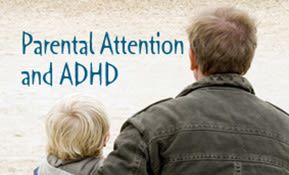
Parenting in Reverse
Parenting is not only educating a child, but the obligation that parents have for the emotional, moral and spiritual development of their children...

In all my years in the mental health field, I have never read anything that resembles what my Rebbe, Rabbi Shalom Arush has written about parenting. I hope for your sake, that your children are still young – but even if they are not – you have the Rebbe's promise that if you follow his advise closely that you will see unbelievable Blessings – not only from your relationships with your children – but from your relationships with everybody.
First, with Hashem's help, I will present the simple and obvious truth of my Rebbe's approach to parenting. Then, from my experience as a psychotherapist, I will illustrate just how quickly it works.
The Hebrew word chinuch is usually used in reference to the process of teaching children what they need to grow up and function as healthy adults. This includes not only giving children a working knowledge of the Torah, but even more importantly it refers to the obligation  that parents have for the moral and spiritual development of their children. A child who has received "good chinuch" is like a holy golden vessel that was fashioned and prepared for use in the Divine service of the Holy Temple. Children, such as these, brighten Hashem's world. Their mode of thinking about themselves, others and the world is, in effect, a reflection of Hashem's perfect character traits.
that parents have for the moral and spiritual development of their children. A child who has received "good chinuch" is like a holy golden vessel that was fashioned and prepared for use in the Divine service of the Holy Temple. Children, such as these, brighten Hashem's world. Their mode of thinking about themselves, others and the world is, in effect, a reflection of Hashem's perfect character traits.
According to Rav Arush, the moral education of children can only be achieved by a person who works on his own moral development first. The only way that we can effectively impart traits such as kindness, generosity and looking for the good in others, to our children, is for us to be working on these same issues within ourselves. Rav Arush is opposed to methods of parenting that rely upon punishment, rebuke, and the use of parental power tactics. Children with parents who simply lecture to them from a pulpit are never inspired to emulate Hashem and the Tzaddikim. Children whose parents yell, shame and frighten them will never be able to reveal their best inborn traits – their minds are too busy hating their parents for not behaving according to the way that their parents are commanding them to behave. These children grow up despising their parent's hypocrisy.
Take for example a child whose father is giving a Dvar Torah (short speech about the Torah) at the Shabbos table. During the father's speech, his wife, who is serving the meal, inadvertently interrupts her husband momentarily to speak to one of the guests. In response to being interrupted, by his wife, the man shows open annoyance and impatience with his wife and ridicules her in front of everyone. This father's rigid claim that he not be disturbed by his wife only teaches his children to be verbally abusive to their own future spouses. The Torah-values that this man hoped to impart to his children, through his speech, was doomed to fall on the deaf and resentful ears of his children.
The following example illustrates how a young father has begun to reverse his destructive pattern of parenting by following the advice of Rav Arush. In this example, the young man who works together with his father in a family business has been the target of his father's anger for years. Whenever the son fell short of his father's expectations, he was yelled at and publicly humiliated by his father in front of the hired workers. As the father neared retirement age, he began to take more vacations and his son looked forward to the day that his father would leave the business. Eventually the son was referred for therapy as a result of angry outbursts towards his own children.
He attended therapy for an extended period of time and claimed to have benefited from the treatment, but unfortunately he continued to snap at his young children – slapping them and intimidating them with frightening and threatening words. His wife was at a loss as to where to turn for help. His therapist was also out of ideas as to how to help his client in this area.
When I met with this young man, I could see that he really loved his children and was truly ashamed of his own behavior. He desperately wished for a way to stop himself but could not. I reassured him that the reason that he had not responded to psychotherapy was not his fault. I told him that he had a spiritual problem and would therefore respond best to a spiritual solution.
I introduced him to my Rebbe's teachings about parenting and gave him real life examples of how others have succeeded with this approach. My client was able to see that he was exploding at his children when their behavior became aggressive and reminded him of his father's abusive tirades. I explained to him that Hashem was sending him a valuable message through the aggressive and oppositional behavior of his children. Hashem was mirroring to him through his children the very midos (personality traits) that he needed to work on in himself.
Soon he realized that his children's behavior was not meant to antagonize him at all – but was being sent by Hashem who knew that if he did not have aggressive and provocative children, he would never be sufficiently motivated to work on this area in himself. The moment that he recognized that his children's behavior came from Hashem to help him, he began to switch his attention off of his children and on to himself. Every time that his children acted up, he knew that it was a message that Hashem wanted him to take immediate action – he would go outside and stroll down his tree-lined street, breathing in the fresh air and taking a few minutes to collect his thoughts. Then, after he felt better, he realized that he had done something very loving for his children and for himself.
Once he saw how much this improved the situation, he gave up on the idea that he could ever "discipline" his children when they were acting up. Instead he hearkened to Hashem's call for him to go outside and clarify the truth for himself. Once he is outside, he prays for calmness and knows that his children are watching from the window and learning from what he is doing. He increasingly trusts that he can leave any situation where he feels out of control and quickly regains control in a spiritual way. As he saw how much his time-outs were helping his children, he began to feel like a good father for the first time in his life. He ultimately became grateful to Hashem for those situations when his children used to act up. One child who at the height of this whole ordeal was put onto medication, I believe is no longer taking it.
My client's father who is well into his 70's has unfortunately not changed yet. He still periodically flies into rages at his son, but my client handles his father in the same way that he handles his children and everyone else. He quietly says to himself: "isn't it wonderful that Hashem is showing me in living color, through this person, exactly what I need to be careful about in myself right now. Hashem, please help me to remember that I can only help You fix others by fixing myself first."











Tell us what you think!
Thank you for your comment!
It will be published after approval by the Editor.